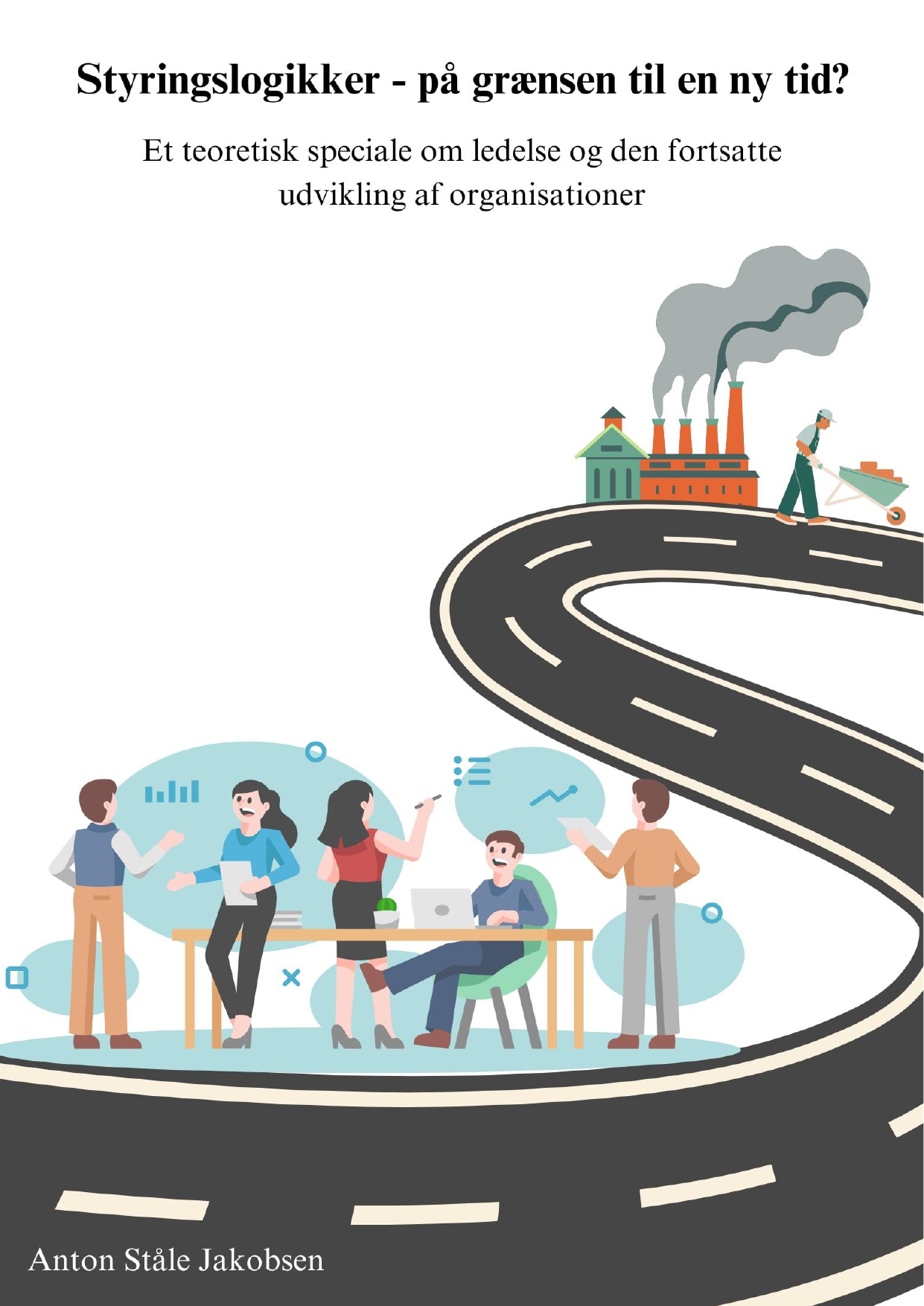
Styringslogikker - på grænsen til en ny tid?: Et teoretisk speciale om ledelse og den fortsatte udvikling af organisationer
Oversat titel
Logics of management - on the edge of a new time?: A theoretical master’s thesis regarding leadership and the continuing development of organizations
Forfatter
Semester
4. semester
Uddannelse
Udgivelsesår
2024
Afleveret
2024-05-31
Antal sider
69
Abstract
This master’s thesis is interested in solving a wide range of problems that organizations today must face. In a world of constant change, unpredictability, a wide range of possible crises and technological advancements that happen faster than ever, the need to rethink organizations is eminent. The thesis draws its theoretical perspectives from various positions. After the careful examination of these positions, a general discussion is presented, that evaluates the quality of the management literature and suggests how leaders in the future should act in order to handle different challenges. The research question of this master’s thesis is: What defines the understanding of organizations from Frederick W. Taylor and onwards toward evidence-based management, and how may these perspectives help prepare organizations for the future? First the organizational views of Frederick W. Taylor are examined, and his case for efficiency in manual labor. Taylor has been chosen since he is the first to systematically inspect and improve the processes of work. The successful story of increased productivity is expanded by the views of Peter Drucker, who acknowledged the importance of Taylors works while also adding to the theory. Drucker introduces a more complex understanding of efficiency that must be applied to knowledge-work which is being performed increasingly often. This is followed by a brief introduction to the consequences of bureaucracy. The next section starts by expanding the analysis of challenges organizations must face today. The primary focus is on technological challenges and opportunities which highlights the need for a flexible production and constant innovation. Then two different properties that positively describes organizations are introduced. First the perspective of agile organizations, which is a case for flexibility and continuous adaptations. Then the perspective of organizational resilience that describes an organization’s ability to manage crises and survive trough the adversity. The last theoretical perspective that is introduced in the thesis is evidence-based management. This perspective argues that management decisions is based too much 3 on past experiences, ideas and assumptions and should instead be based on scientific evidence and data. It is argued that managers have some assumptions and biases that is involved in the decision-making and the result is suboptimal leadership. This part of the thesis also acknowledges that these factors are difficult to change, however different avenues to improving the general skill in practicing evidence-based management are proposed. In the end a general discussion is presented that includes several topics. First the general state of research in management and the incentives to publish a high number of articles instead of publishing fewer articles of better quality is visited. This is problematic due to the possible implications on the practice of management. The gap between doing strong scientific research and doing research that is useful to managers is then discussed. It is argued that the right balance between these two interests is important in the future of management research. The next sections in the discussion are focused on the complexity managers are faced with in organizations today. This complexity is important to consider, because management needs to take the complexity into account and adapt accordingly. Part of this task is to ‘translate’ scientific evidence into useful actions in the organization. In the final part of the discussion a model of doing evidence-based management is presented. The model of evidence-based management in practice (the EBMP-model) describes how several factors in the organization and factors relating to the manager is important to the successful implementation of evidence-based management. If successfully adapted the model suggests that evidence-based management can lead to organizational success in the future.
Emneord
